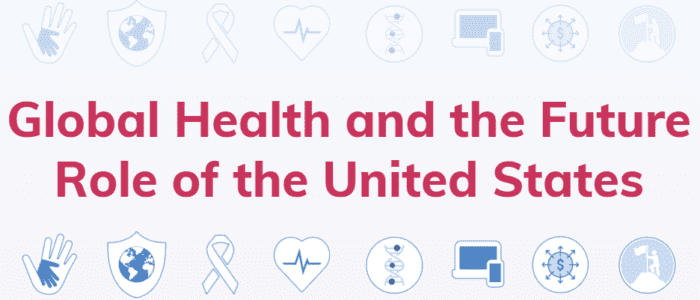September 28, 2017
In addition to saving millions of lives, returns on investment in health can exceed costs by up to 20 times in some countries. That’s one of many striking findings in “Global Health and the Future Role of the United States,” a 360-page report and interactive website recently released by the National Academies of Science, Engineering, and Medicine (NASEM).
Above all, the report states that foreign assistance for health is a sound investment, serving to save millions of people from preventable deaths, protect the American people from pandemics, spur economic growth in developing countries, and build stronger U.S. trading partners (11 of the top 15 U.S. trading partners are former recipients of foreign aid).
NASEM brought together a committee of global health experts, culminating in 14 recommendations to improve the health of people across the globe. The recommendations are:
- Improve International Emergency Response Coordination
- Combat Antimicrobial Resistance
- Build Public Health Capacity in Low- and Middle-Income Countries
- Envision the Next Generation of PEPFAR
- Confront the Threat of Tuberculosis
- Sustain Progress Toward Malaria Elimination
- Improve Survival in Women and Children
- Ensure Healthy and Productive Lives for Women and Children
- Promote Cardiovascular Health and Prevent Cancer
- Accelerate the Development of Medical Products
- Improve Digital Health Infrastructure
- Transition Investments Toward Global Public Goods
- Optimize Resources Through Smart Financing
- Commit to Continued Global Health Leadership
The Global Fund and U.S. bilateral programs against HIV/AIDS, tuberculosis and malaria are highlighted as key components to achieving greater global health, as well as supporting significant security and economic returns on investment for the U.S. Specifically, the report calls out:
“The U.S. government has long been at the forefront of shaping the international policy agenda and establishing institutions like the U.S. President’s Emergency Plan for AIDS Relief (PEPFAR) and the Global Fund to Fight AIDS, Tuberculosis and Malaria, which make the world safer for America’s citizens by improving health and producing more stable societies in other countries, and more humane for millions of people facing heavy disease burdens.”
Among its recommendations, the NASEM report further suggests that the U.S. government should:
“Continue to support the Global Fund, and rely on it for specific functions where it has the comparative advantage. Such functions could include the Global Fund’s efficient procurement of products and multipartner efforts to encourage countries to transition to domestic sources of funding.”
The report further highlights the Global Fund’s e-marketplace, wambo.org, which helps streamline cost and logistics for procurement of medicines and health commodities; the Global Fund and PEPFAR’s work to prevent disease through incentives that keep girls in school; and its work to catalyze increased domestic investments in health.
Click here for more information and the full report.

